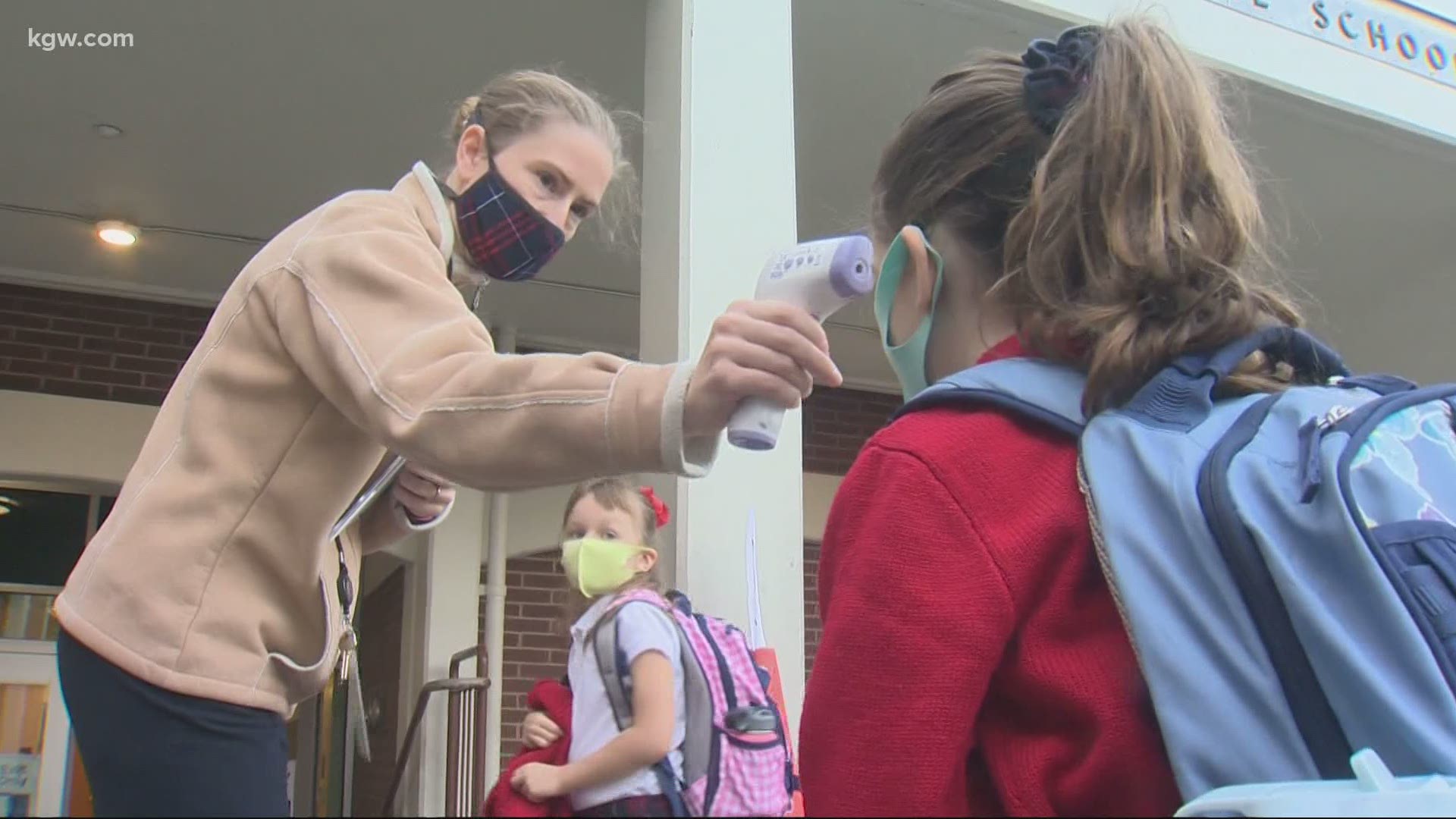PORTLAND, Ore — To send kids back to school or keep them home?
As of this week, Oregon school districts took control of their reopening plans, and the debate around a return to any form of in-person learning is intensifying.
KGW turned to some experts to weigh in on the pros and cons of going back to in-person learning. We found even pediatricians differ in their views.
The fundamental, but loaded, question is: What are the risks and benefits of getting kids back in school?
"It's very complicated and there's not a perfect answer, even in a small school setting. It's hard to have a one-size-fits-all," said Dr. Malaika Little, an infectious disease specialist and pediatric hospitalist at Randall Children's Hospital.
There's no argument that being away from school impacts many kids' overall well-being.
"We're talking about a long time to be out of school also, so people are trying to balance all that social-emotional help and kids facing the stresses of being at home," Little added.
Brave Care pediatrician and Chief Medical Officer Dr. Corey Fish offers primary care and urgent care for kids. He knows many kids' mental health has been greatly affected during the pandemic and subsequent lockdowns and school closures; there's growing evidence to support that.
Many feel isolated being away from friends and the traditional learning environment.
"But I'm just wondering if five months of school is really going to fix that?" Dr. Fish added.
On one side of the debate, many, including some doctors, feel the pros of closing schools don't outweigh that con.
"There's a lot of benefits, and I think those benefits outweigh any sort of small risk of COVID-19 transmission," Oregon Health & Science University (OHSU) pediatric infectious disease specialist and professor Dr. Dawn Nolt said. "There is more data that shows that schools closing and opening are not going to affect the course of the pandemic. For the betterment of our children's education, we should try to keep schools open."
Others, including some doctors, don't think it's safe yet. They ask: Why risk it now before teachers and school staff get vaccinated?
Dr. Fish said he'd like to see them vaccinated before classrooms open to more kids, yet recognizes the need and potential for younger kids to return on-site sooner than older kids.
"Looking at reopening schools in a normal way right now seems like it wouldn't be the most ideal choice. It seems like we should buckle down, get things under control and target next fall," Fish added.
"They should go back with protections, knowing how to protect themselves, with kids and families that are also compliant with that and are ready to go back," Dr. Little told KGW. "I think there are ways to do that without vaccination."
Many also ask: Why risk returning to any form of in-person school as a new coronavirus variant quickly spreads? We don't know much about this new variant or how it impacts children yet.
"It's concerning we don't have regular COVID under control and now there's this new variant that maybe spreads more easily," Dr. Fish said. "It should factor into the conversation."
Fortunately, early reports show the coronavirus vaccines work on this mutated coronavirus and tests can pick it up.
Pediatricians say kids don't drive COVID-19 infections in schools or in the community. They're not as contagious, susceptible and don't get as seriously sick.
"It's notable in Oregon that hospitalization rates for kids is less than 1% and there have been no deaths of any children with COVID-19 in Oregon," Dr. Nolt said, citing the latest data from the American Academy of Pediatrics.
A few months of data from schools of all sizes worldwide shows low transmission when schools follow strict safety protocols.
READ: October 2020 World Health Organization report 'What we know about COVID-19 transmission in schools'
But should districts choose to return to in-person learning, most teachers and staff don't have a choice but to go back. Many fear for their own and their families' safety.
"School reopening and safe school reopening, in my view - and I think a view shared by most pediatricians - has really been more about teachers, adult staff members and older kids," Fish said.
"The transmission rates among adults is going to reflect what's in the community. So we should take precautions for adults in schools as we would in the community," Dr. Nolt said.
"As opposed to people always facing it with a fear, I think we can flip it back and say, 'Hey, I know how to protect myself. I can do this'," Dr. Little added.

